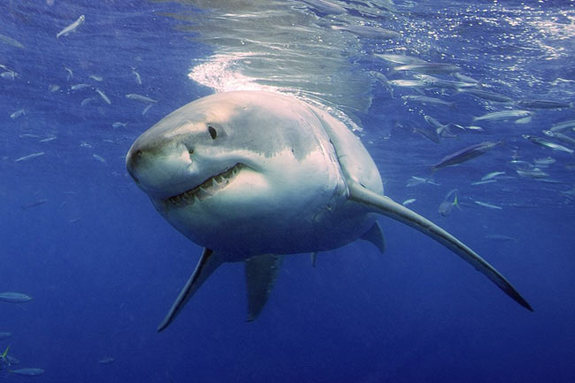Shark Attack Kills New Zealand Man

A shark attack today (Feb. 27) killed a New Zealand man swimming at Muriwai Beach, a popular swimming and surfing area near Auckland.
Several sharks were involved in the attack on Adam Strange, 46, according to witnesses, though a 12- to 14-foot long (3.5- to 4.3-meter) great white shark is believed to have initiated the strike, CNN.com reported.
Police responded immediately to the attack: Officers fired several shots from an inflatable boat and a police helicopter at the great white shark and reportedly hit the animal, according to the New Zealand Herald. The shark swam off, however, leaving police to wonder if it is still alive.
Eyewitness Pio Mose was fishing at the beach when the shark attack occurred. "We saw the shark fin, and next minute, boom, [it] attack him, and then blood everywhere on the water," Mose told local news website Stuff.co.nz.
Shark attacks are rare: Since 1837, just 15 fatalities in New Zealand have been attributed to sharks. The last such attack happened in 1976, according to the Herald.
Many experts agree that humans pose a much greater risk to sharks than sharks do to humans. A 2012 study, published in the journal Conservation Biology, found that shark populations have dropped 90 percent or more in some areas of the Pacific Ocean.
The study also determined that the closer humans live to shark populations, the bigger the drop in shark numbers.
Get the world’s most fascinating discoveries delivered straight to your inbox.
Experts believe overfishing poses the greatest threat to sharks, which often die as "bycatch" in fishing nets intended for other species. Sharks have slow reproduction rates and may take more than 20 years to reach sexual maturity, so depleted populations can take decades to rebound. As a result, some states and countries now list many shark species as endangered.
Contact Marc Lallanilla at mlallanilla@techmedianetwork.com. Follow him on Twitter @MarcLallanilla. Follow LiveScience on Twitter @livescience. We're also on Facebook & Google+.



